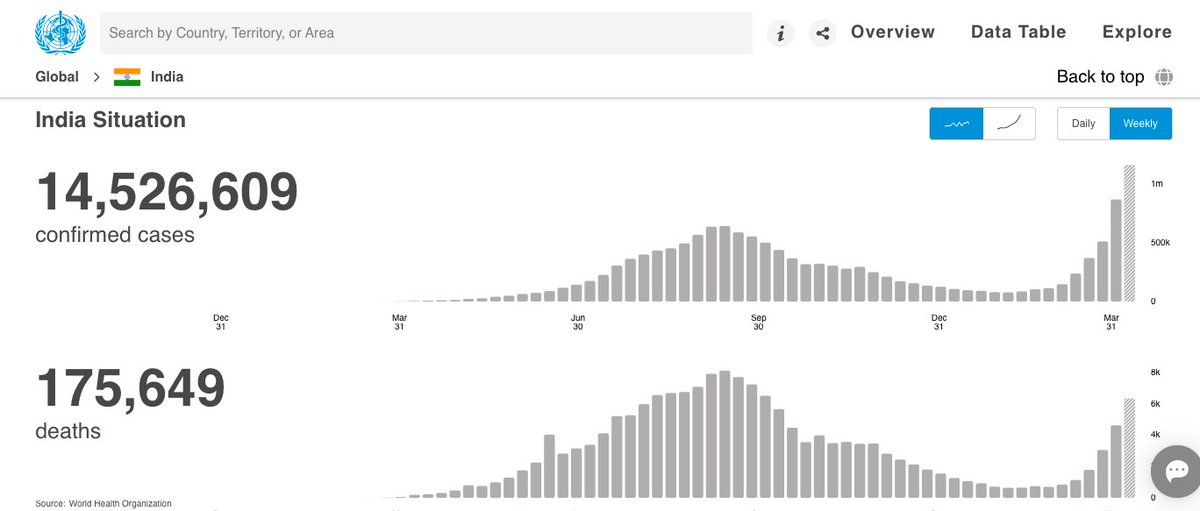
We had some interesting findings from our study on the impact of COVID-19 on cancer care. What we did was pretty simple…
Impact of COVID-19 on cancer care in India: a cohort study thelancet.com/journals/lanon…
Impact of COVID-19 on cancer care in India: a cohort study thelancet.com/journals/lanon…

We looked at volumes of services in 41 cancer centres that were part of the @CancerGridIndia over a 3 month period during the pandemic in 2020 and the same 3 months in 2019.
These 41 centres treat exactly one-third of all patients with cancer in India – approximately 450,000 new patients every year. So, our study was fairly representative of what was happening in the country (and probably many other parts of the world) 

We collated data on new patient registrations, outpatient clinic consultations, radiology and pathology tests done, surgeries performed, patients treated with radiotherapy and chemotherapy, palliative care referrals, and cancer screening.
We had data on >160,000 new cancer diagnoses, almost a million hospital visits, about 150,000 inpatient admissions, 650,000 pathology tests, >147000 CT/MRI scans, >50,000 cancer surgeries, >90000 patients getting radiation, >282000 chemotherapy sessions & 33000 pallcare referrals
Reductions in volumes of cancer services were dramatic
New patients registrations fell by 54%, outpatient clinic visits by 46%, hospital admissions by 36%, pathology by 38%, radiology by 43%, surgeries by 49 to 52%, chemotherapy by 37%, radiation by 23% & palliative care by 29%

New patients registrations fell by 54%, outpatient clinic visits by 46%, hospital admissions by 36%, pathology by 38%, radiology by 43%, surgeries by 49 to 52%, chemotherapy by 37%, radiation by 23% & palliative care by 29%


Cancer screening had either completely stopped, or were down to <25% in 70% of these centres. Let that sink in...
Overall, reductions were far more in bigger cities than smaller ones. The pandemic clearly forced a distributed model of cancer care in the country. We need to be able to offer quality care close to patients’ homes 

These reductions in numbers reflect huge numbers of patients with cancer who have dropped off the system. And will result in hundreds of thousands of cancer deaths over the next few years
And we’ve looked only at cancer. We haven’t evaluated the impact of COVID-19 on other critical diseases like cardiac, renal, tuberculosis, mental health, and conditions like perinatal care, immunization of children, and many others.
These are truly sobering statistics. The impact of #COVID-19 on healthcare is likely to go far beyond the COVID-19 deaths that we see. Pandemic preparedness is key, and we should ensure that critical non-pandemic healthcare continues uninterrupted during pandemics
For the general public and patients with cancer, my advice is to balance the risks of the pandemic with the benefits of accessing cancer care (and other critical healthcare), and continue getting care, with all pandemic precautions
To healthcare providers, please continue care of critical non-pandemic diseases even during a pandemic. Let us not allow the panic of a pandemic to take a bigger toll than the pandemic itself.
What #COVID-19 has taught us is that globally, public healthcare systems have to be robust, we need redundancy to prepare for unexpected events, and we cannot afford to deprioritize critical illnesses during catastrophic events like pandemics.
• • •
Missing some Tweet in this thread? You can try to
force a refresh






